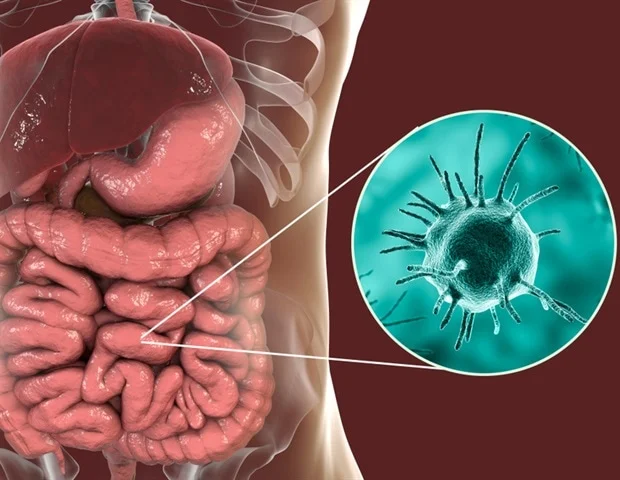Introduction to Fibroids
Fibroids. You’ve probably heard the term, but what exactly are they? These non-cancerous growths can show up silently and disrupt a woman’s life in unexpected ways — from causing painful periods to interfering with pregnancy. But don’t worry — this guide walks you through everything you need to know.
What Are Fibroids?
Fibroids, medically known as uterine leiomyomas, are benign tumors that grow within or around the uterus. While they’re not cancerous, they can vary in size, number, and location, leading to a wide range of symptoms — or sometimes none at all.
Common Myths About Fibroids
Let’s bust a few myths:
- Myth: All fibroids cause pain.
- Truth: Many women don’t even realize they have fibroids until a pelvic exam or imaging.
- Myth: Fibroids always require surgery.
- Truth: Many cases can be managed with medication or even lifestyle changes.
Types of Fibroids
Intramural Fibroids
These grow within the muscular wall of the uterus and are the most common type. They may enlarge the uterus and cause heavy periods or pressure.
Subserosal Fibroids
These grow on the outer wall of the uterus. They may press on surrounding organs like the bladder or rectum, causing discomfort.
Submucosal Fibroids
Located just beneath the lining of the uterus, these are less common but more likely to cause heavy bleeding and fertility problems.
Pedunculated Fibroids
These are attached to the uterus by a thin stem, either inside or outside the uterus. They can twist, causing sharp pain.
Causes of Fibroids
While the exact cause of fibroids remains unknown, several factors may contribute:
- Hormonal imbalances (especially estrogen and progesterone)
- Genetics
- Obesity
- Early menstruation
- Vitamin D deficiency
Risk Factors Associated with Fibroids
Some women are more likely to develop fibroids than others. Risk factors include:
- Being over age 30
- Family history of fibroids
- African-American descent
- Poor diet and lack of exercise
Symptoms of Fibroids
Some fibroids remain silent, but others scream for attention with:
- Heavy or prolonged menstrual bleeding
- Pelvic pain or pressure
- Frequent urination
- Pain during intercourse
- Backache or leg pains
- Constipation
How Fibroids Affect Pregnancy
Fertility and Conception
Depending on their size and location, fibroids may interfere with conception by blocking the fallopian tubes or disrupting the uterine lining.
Complications During Pregnancy
Pregnant women with fibroids may experience:
- Miscarriage
- Preterm labor
- Breech positioning
- Placental abruption
- C-section delivery
Diagnosis of Fibroids
Fibroids are typically diagnosed through:
- Pelvic examination
- Ultrasound imaging
- MRI scans (for detailed views)
- Hysteroscopy (to view the uterus interior)
Treatment Options for Fibroids
Watchful Waiting
If fibroids aren’t causing symptoms, no treatment may be needed — just regular monitoring.
Medications
Hormone therapy, NSAIDs, and birth control can help manage symptoms but don’t eliminate fibroids.
Minimally Invasive Procedures
- Uterine Fibroid Embolization (UFE)
- MRI-guided focused ultrasound
- Endometrial ablation
Surgical Treatments
- Myomectomy: Removes fibroids but preserves the uterus
- Hysterectomy: Complete removal of the uterus; a permanent solution
Natural and Lifestyle Remedies
- A balanced diet rich in fruits, vegetables, and fiber
- Regular physical activity
- Stress management techniques
- Herbal supplements (with doctor’s approval)
When to See a Doctor
If you’re experiencing:
- Heavy bleeding
- Unexplained pelvic pain
- Trouble getting pregnant
It’s time to consult a gynecologist.
Living with Fibroids
Many women manage fibroids with a combination of medical treatments and lifestyle changes. Knowing your options puts you in control of your health.
Conclusion
Fibroids may be common, but they don’t have to control your life. With modern treatment options and a better understanding of your body, you can live well, even with fibroids. Awareness is the first step to healing.
FAQs About Fibroids
- Can fibroids go away on their own?
Yes, especially after menopause when hormone levels drop. - Do fibroids always cause symptoms?
No. Many women have no symptoms at all. - Can fibroids turn into cancer?
It’s extremely rare. Most fibroids are benign. - Is surgery the only option?
Not necessarily. Medications and minimally invasive treatments often help. - Can I get pregnant if I have fibroids?
Yes, but it depends on the size, number, and location of the fibroids.















Leave a comment